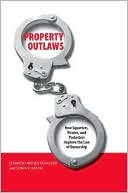The Law Library is looking for 2Ls or 3Ls to work as Research Fellows to conduct research for various faculty and library projects. The hours are flexible and most research can be done online. Research Fellows receive the same hourly wage as faculty research assistants. Adding “Research Fellow” to your resume is a great way to show potential employers that you are proficient in a key lawyering skill. To apply submit your resume and short writing sample to Jean Callihan, Head of Research Services. You can drop off the materials at the Circulation Desk in the Reading Room.
 For researching foreign law, the Cornell Law Library F&I Guide is a time saver and sometimes even a life saver! This Guide and other guides are available under Research Guides on the Law Library home page. Use the Guide to start your research or for ideas when you get stuck. All 192 nations of the world are covered, listed by geographic region under “Foreign Law Sites.”
For researching foreign law, the Cornell Law Library F&I Guide is a time saver and sometimes even a life saver! This Guide and other guides are available under Research Guides on the Law Library home page. Use the Guide to start your research or for ideas when you get stuck. All 192 nations of the world are covered, listed by geographic region under “Foreign Law Sites.”
Once you select the country you want to research, you will see options for “Cornell Law Library Resources” and “Guides and Other Resources,” but the four links in the brown box may be all you need (described in detail below):
- Foreign Law Guide by Reynolds and Flores
- Guide to Law Online by the Law Library of Congress
- World Legal Information Institute (World LII)
- World Factbook by the CIA
Foreign Law Guide by Reynolds and Flores is the bible for foreign law research. It is an online subscription resource available through Cornell Law Library and must be accessed via campus computer or through your Cornell ID. Foreign Law Guide provides background on the history of each country’s legal system and where to find legal resources, both print and online.
Guide to Law Online is a compilation of resources for each country from the Law Library of Congress. The Guide organizes links under branches of government and links to cases and statutes (among other things), if available. It is free for everyone.
World Legal Information Institute (WLII) provides online information for countries by topic. If the information isn’t listed, it is most likely not available online. This Web site is free for everyone.
CIA World Factbook is a respected source for general information about individual countries. It is a good idea to understand the country’s government and legal system before plunging into foreign law research. The Web site is free.
Like most online resources, these four generally do not cover information beyond the early 1990s. For older cases and laws, you will have to look for print resources (use the F&I Guide to find print resources at Cornell Law Library). It is often difficult to find case law and legislation in English and the information you seek may not be available. As a last resort, you could call the embassy, a law library, or a law firm in the country you are researching.
Consider using the F&I Guide as a one stop shop for your research needs. You are always welcome to come to the Reference Desk in the Reading Room for help.
 Cornell Law School is celebrating the publication of Prof. Eduardo Peñalver’s book Property Outlaws: How Squatters, Pirates, and Protesters Improve the Law of Ownership, which he co-authored with Sonia K. Katyal, Professor at Fordham University School of Law. The library catalog information for the book is available here. You can see the Table of Contents and read selected pages from the book at amazon.com.
Cornell Law School is celebrating the publication of Prof. Eduardo Peñalver’s book Property Outlaws: How Squatters, Pirates, and Protesters Improve the Law of Ownership, which he co-authored with Sonia K. Katyal, Professor at Fordham University School of Law. The library catalog information for the book is available here. You can see the Table of Contents and read selected pages from the book at amazon.com.
If you are intrigued by the concept of the role of the lawbreaker as a force in the evolution of property law, you can read an earlier treatment of the topic entitled “Property Outlaws,” co-authored by Professors Peñalver and Katyal in 155 U. PA. L. REV. 1095 (2007) and available in Scholarship@Cornell Law. The book expands the scope of the earlier article and also introduces the concept of “Altlaws.” Altlaws appear to violate the laws of intellectual property but “skirt the boundaries of property legality and can often make an objectively plausible argument that, although in a sense they are rebelling against the property status quo, their conduct actually falls within the boundaries of legal permissibility.” Altlaws push against the unclear boundaries of intellectual property law, as opposed to Outlaws who clearly operate outside the boundaries of property law.
For more of Professor Peñalver’s writings, see his faculty publications page and the Scholarship@Cornell Law online repository.
Now is the time to set up a research consultation to prepare for your summer job. An appointment with a Research Attorney is the perfect way to get ready for your summer employment, whether you are clerking for a judge, working in a law firm, volunteering for a nonprofit, or researching for a professor. You can set up a mutually convenient time with the Research Attorney of your choice (or indicate no preference) using the online form. Let us know where you will be working and how we can help you. Maybe you want to know how to:
- research the law in a specific state;
- research the law in a particular area of practice like securities law;
- improve your Westlaw or Lexis skills;
- research non-legal topics such as company research;
- hone your existing skills in a particular area;
- get a quick refresher in the basics.
Appointments last about 15 minutes to an hour depending on your needs, and you leave with a handout listing materials to help you over the summer. We guarantee that a consult will be useful to you in the real world and encourage you to meet with us one-on-one.
Want to be prepared to practice in a world of international and transnational law? Most of you will face issues involving transnational law—are you ready? An easy way to learn the basics is to use the Global Issues series on reserve in the Law Library. These slim volumes supplement law school courses from contracts to torts and give you an overview of key concepts along with comparisons to U.S. law. Each title includes narrative explanations and excerpts from articles, government documents, and cases. Most importantly, the books quickly get to the point. We will be adding titles on more areas of law as they become available. More are on the way, but right now we have the following Global Issues in…:
- Constitutional Law
- Civil Procedure
- Contract Law
- Corporate Law
- Criminal Law
- Employment Discrimination Law
- Employment Law
- Family Law
- Income Taxation
- Labor Law
- Legal Ethics
- Property Law
- Tort Law
We have ordered these Global Issues in…:
- Copyright
- Employee Benefits Law
- Environmental Law
- Freedom of Speech and Religion
- Intellectual Property Law
Check reserve items out for two hours at a time or overnight from the Law Library circulation desk.
 The Law Library developed Scholarship@Cornell Law (S@CL) to provide an online repository for faculty publications and working papers. S@CL has expanded and now includes many other interesting collections to explore. So here are three reasons to click on the link on the Law Library home page to visit S@CL:
The Law Library developed Scholarship@Cornell Law (S@CL) to provide an online repository for faculty publications and working papers. S@CL has expanded and now includes many other interesting collections to explore. So here are three reasons to click on the link on the Law Library home page to visit S@CL:
- Did I mention faculty scholarship? You can browse through papers submitted by year or search by author and see just what your professors have been up to. The collection includes published articles and working papers.
- Check out the Centers and Programs link. Find out about ongoing programs like the Death Penalty Project and the Avon Global Center for Women and Justice (just click on International Comparative Programs to find the Avon Global Center).
- Conferences, Lectures and Workshops gives you a chance to “attend” some of the interesting programs that have been held in the law school in years past. This collection lets you see what was discussed in the comfort of your own room.
We have other collections worth visiting, but hopefully these three highlights will pique your interest in the scholarship happening at Cornell Law School.



